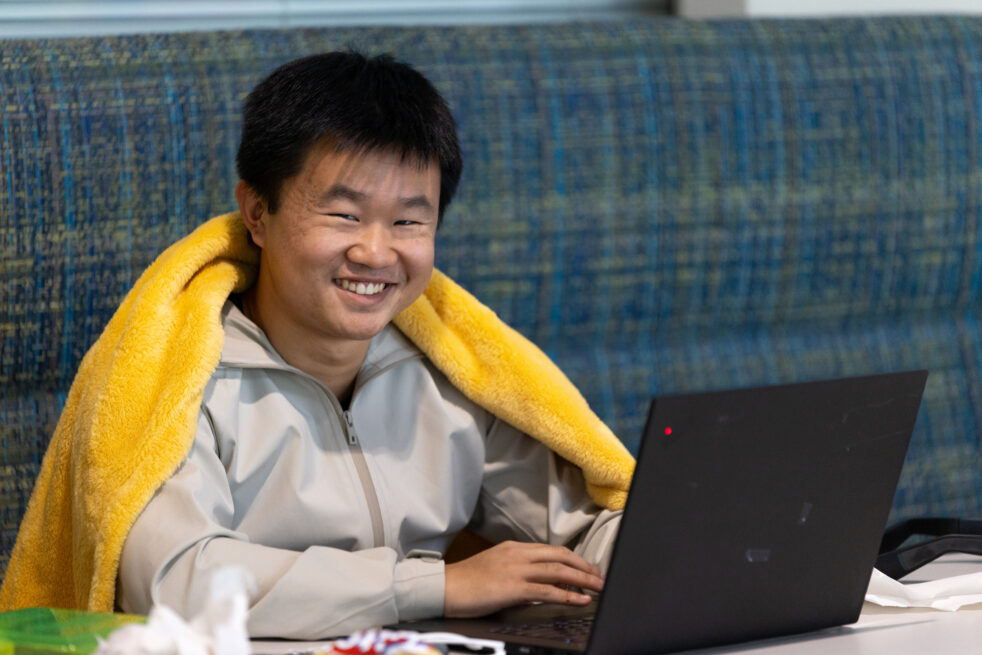Despite ongoing flood warnings from Hurricane Helene, HackGT 11: Circus of Inventions started on schedule on Friday, Sept. 27. Sounds of intense brainstorming and laughter drifted through the halls of the Klaus Advanced Computing Building as students worked on their projects and hung out.
HexLabs invited over 700 students from across the country to collaborate on innovative projects showcasing their creativity. Students had 36 hours to build and/or code a project from scratch to win prizes from sponsors for one of four categories: data analytics, AI, VR/AR (augmented reality) or charitable causes.
The Technique spoke with students about why they chose to participate in the competition. Many cited getting project experience to bolster their resumes. But they also shared other reasons with each other.
“I honestly just wanted to go out and meet new people and work on cool stuff together,” Kamrul Tarafder, third-year CS at Georgia State University, said.
“We want to create a product that has an impact,” Ivan Yakubovich, second-year CS, said. His team’s project was a mobile app called SafeHaven that helped people in need find shelters and get real-time updates during a disaster.
“Events like this draw in a specific type of person who’s really friendly, really open and very goal-oriented, and that was really appealing to me,” said HexLabs marketing co-director Tony Luu, fourth-year CS. “The people who are here at night are so dedicated to what they’re working on — putting all their energy into it — and that’s really inspiring to me.”
Students visited mini-events and workshops throughout the hackathon to earn points for swag and to socialize. Music rang out in the courtyard from various student group performances, including Afro Dance and Glee Club. Other events, such as a chess competition, karaoke and movie night, were scattered throughout the weekend. On Saturday afternoon, students gathered in the dim mini-events classroom to mingle and construct paper planes while soft Wii music played in the background.
In the Klaus Atrium, students clustered around the table of Snap AR, one of the event sponsors, excited to try their new Spectacles AR glasses. Some event organizers played together, summoning random objects in a shared experience. “Snap reached out to us this year, and we didn’t know why they did,” HexLabs co-director Anna Zhao, fourth-year ISYE, said. “But a couple of days before the hackathon, they told us that they were launching Spectacles and are here to test it.”
Russell Patton, product manager at Snap Labs, explained that Snap is “excited about AR [augmented reality] as a way to expand what computing can be” and lent glasses for several teams to develop programs with them.
“There’s a lot of great ideas coming from everyone here, and we’re excited to see people bring things to life on Spectacles,” Patton said.
Pittsburgh Regional Health Initiative (PRHI) sponsored an award for projects that tackled patient safety challenges in medications, procedural, patient care, infections and diagnostic safety. Ariana Longley, Patient Safety Consultant at PRHI, explained that they have sponsored around 70 events in the past few years supporting innovation in patient safety with the goal of increasing awareness of the safety crisis.
“We need [corporate] sponsors because they are providing the jobs, internships, skills and tools that students need, but they have generally lacked the social good element,” Longley said. “We are bringing the human element to these hackathons.”
PRHI awarded their prize to the team that developed Clarity, a software aimed at detecting fatigue in doctors through real-time video and audio tracking. The team suggested that it could reduce the risk of medical error and help prevent burnout.
The designers of Noma won the best overall prize. Their software used real-time 3D facial tracking and automatically labeled audio and visual transcriptions to allow surgeons in rural areas to collaborate with specialists for Mohs micrographic surgery, a procedure used to treat skin cancer.
Some of the projects were more lighthearted and fun. One team made a ghost survival game using the Spectacles, and another built a motorized car, Lightning McScream, that used sound sensors to power a virtual drag race.
By Sunday, participants submitted a total of 143 projects, showcasing their passion and dedication. Winners and all projects submitted for judging can be found at hackgt-11-circus-of-invention.devpost.com/project-gallery. HexLabs also hosts smaller events throughout the year, such as the Horizons Design and Tech Make-a-Thon and Catalyst high school STEAM program, both of which are in the spring. More information will be announced at hexlabs.org and on their Instagram account, @thehexlabs.
